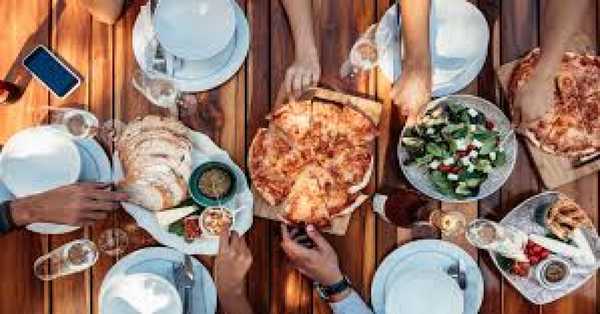Your digestive system will function when you are asleep, which can affect your deep sleep, causing restlessness and/or sleeplessness.
I am sure you all have heard people on weight-loss regimens raving about the benefits of an early dinner. But have you ever wondered how eating your dinner by seven or eight in the evening helps?
You see, when you have your dinner two to three hours before sleeping, your metabolism improves. The food gets time for proper digestion and there is no acid reflux at night. There should be a gap of 11 to 12 hours between dinner and breakfast. This helps your digestion to function in an optimum manner.\
When you eat late, the calories you intake don’t get digested properly. As a result, they are stored as fat in your body. Eating late regularly conditions your body to store the calories as fat, which leads to weight gain. This can also give you problems like indigestion and heartburn. Those who eat dinner at least two hours before bed have a reduced risk of cancer. For men, there was a 26% reduced risk of prostate cancer, and for women, there was a 16% reduced risk of breast cancer.
Eating dinner early gives your body more time to stabilize blood sugar levels, which plays a role in making you feel less fatigued and irritable. Moreover, eating early gives you more energy to perform activities before bed. If you eat food just before getting into bed, food is not digested properly as lying down causes many problems like acid reflux, gas, bloating, or abdominal pain.
Your digestive system will function when you are asleep, which can affect your deep sleep, causing restlessness and/or sleeplessness. People who eat dinner late also tend to eat more. When you eat late, the calories aren’t burned off and they are converted into a fatty acid that increases the risk of heart attack and stroke.
After-dinner snacks usually consist of high-calorie foods such as chocolate, ice cream, and crisps which we eat because of boredom, stress, and sleeplessness. We eat those snacks without feeling hungry so the calories that we intake are converted into fatty acid.
Lying down in bed immediately after eating can lead to symptoms such as indigestion, acid reflux, and heartburn. This is commonly triggered by high-fat and spicy foods, which should be avoided in the evening. Sleep can also be negatively impacted by late-night consumption of sugary snacks, which will send blood sugar levels soaring. This reduces the quality of sleep, just liking drinking alcohol does, by reducing our deep sleep.
